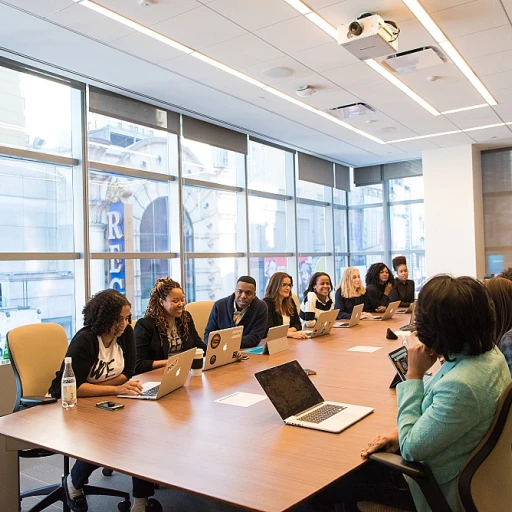
Overview of Washington's Lunch Break Laws
Key Elements of Washington's Lunch Break Regulations
Washington State is known for having some well-defined labor laws, including those concerning lunch breaks and other rest periods. These regulations are an essential aspect of ensuring fair treatment for employees while balancing the operational needs of employers. To provide a comprehensive understanding, we'll delve into the major components that shape these laws. In Washington, the state labor laws dictate specific requirements for breaks and meal periods. According to state regulations, employees who work for more than five consecutive hours are entitled to a 30-minute unpaid meal break during which they are completely relieved of their duties. This is essential to prevent overworking and to provide employees with the necessary time to rest and rejuvenate during their work hours. Furthermore, Washington law requires employers to provide a paid rest break of at least 10 minutes for every four hours worked. This ensures employees have shorter, but essential, breaks that contribute to overall workplace well-being. It's important to note that during these rest breaks, employees are not required to perform any work-related tasks and should have uninterrupted time for themselves. Washington’s requirements stand in contrast with federal labor laws, which do not mandate meal or rest breaks. Instead, federal law relies heavily on state provisions in such matters. Employers must therefore be well-informed about both federal and state regulations to avoid any legal complications. For anyone interested in comprehending the broader implications these laws have on payroll processing, determining compensation, and calculating hours, consulting resources like an understanding of payroll calculators in Ohio can offer insightful parallels. Overall, Washington State emphasizes the need for both meal breaks and short rest periods during work hours, which contributes significantly to the well-being of employees. These regulations help in maintaining a work-life balance and serve as a protective measure for employees’ health and productivity.Employee Rights and Employer Obligations
Employee Rights and Employer Obligations in Washington
When it comes to ensuring fair labor practices, Washington state has set out clear requirements for breaks, ensuring that employees are aware of their rights while employers understand their obligations. In Washington, labor laws dictate rest breaks and meal periods, aiming for a balance between productivity and employee well-being. For employees working in Washington, it's vital to know that the law requires employers to provide certain breaks within a work shift. Employees are entitled to a 30-minute meal break when their work shift exceeds five consecutive hours. This meal period, however, is unpaid unless the employee must remain on duty. It's important for employers to note that the meal break should be free from work-related activities to be compliant with these break laws. Furthermore, Washington state mandates rest breaks approximately every four hours of work. These rest breaks should last at least 10 minutes and must be paid. It's a way for employees to rejuvenate during long work hours, ensuring they remain productive. Employers must comply with these labor laws by scheduling breaks in a manner that meets the requirements. For instance, rest breaks should ideally occur during the work period and not be combined with meal periods. The responsibility lies with the employer to guarantee that employees have the necessary time away from their tasks within these designated breaks. Adherence to these break requirements not only fulfills legal obligations but also fosters a positive work environment. By respecting employee rights and managing work hours effectively, employers contribute to higher morale and productivity, aligning with state and federal standards. For a detailed exploration of overtime rules that could affect break times, such as the concept of Chinese overtime, further understanding is available. This insight helps in ensuring compliance with varying overtime and break laws across different scenarios.Exceptions and Special Cases
Unique Circumstances and Break Time Exceptions
While Washington's lunch break regulations are generally applicable to a wide range of work situations, there are some exceptions and special cases to these rules. Understanding these exceptions is vital for both employees and employers to ensure compliance and to align with expectations in the workplace.
In certain industries, the rigid application of standard break laws may not be feasible due to the nature of the job. For instance, jobs in health care or certain emergency response roles may require employees to be on alert and ready to perform their duties at a moment's notice, which could impact the timing and duration of meal and rest breaks.
The law accounts for such circumstances, allowing for flexibility, provided the employers ensure that reasonable compensation arrangements are in place. Employees should be compensated appropriately if they are prevented from taking their scheduled breaks or meal periods due to work demands.
Additionally, smaller businesses might have different requirements based on the number of employees and the hours worked. It's important for both parties to be well-versed in the specific exceptions to avoid any misunderstanding. Employers need to disclose these conditions clearly and ensure that all work hours are compliant with both state and federal labor laws.
Finally, in Washington State, there is a "waiver option" available for workers willing to voluntarily waive their meal breaks. This choice should be made carefully, considering the impact on one's work-life balance and overall health. Employers must ensure that any such decisions are genuine and free from any coercion.
Impact on Workplace Productivity and Morale
Effect on Efficiency and Team Spirits
The understanding of Washington state's break laws can significantly affect workplace productivity and morale. Properly managed break schedules allow employees to rest, ensuring they remain focused and energized throughout their work hours. This can be particularly crucial in jobs demanding high levels of concentration or physical effort, where even short breaks can refresh the mind and body. Moreover, adhering to these labor laws fosters a sense of fairness and respect within the workforce, promoting a positive workplace culture. Employees who know their rights, such as having a required meal period or adequate rest breaks, are likely to feel more valued. This sentiment, in turn, can boost overall morale, leading to higher employee engagement and lower turnover rates. Of course, the practical implementation of these breaks, whether they are 10-minute rest breaks or longer meal breaks, must be carefully planned to avoid disruptions. Employers can benefit by creating flexible schedules that accommodate different employee needs while also meeting production goals. By aligning break policies with both state and federal law, employers show a commitment to employee well-being, thereby nurturing loyalty and motivation. Well-rested employees tend to work more productively and efficiently, benefiting not just themselves but the organization as a whole.Comparing Washington's Laws with Other States
Juxtaposing Washington with Nationwide Regulations
In evaluating how Washington state's lunch break regulations measure up against those of other states and federal law, it becomes evident that the laws vary significantly across the United States. This mosaic of regulations influences employee experiences, rest policies, and meal period provisions in unique ways.- Washington's Stance: Washington mandates specific meal breaks and rest periods to ensure the well-being of employees. Employees are entitled to a 30-minute meal break if they work more than five consecutive hours and at least 10-minute rest breaks for every four hours worked. Such regulations aim to enhance employee productivity by prioritizing rest during work hours.
- Federal Law Overview: The federal law, under the Fair Labor Standards Act, does not require employers to provide meal or rest breaks. However, if breaks are offered, breaks lasting under 20 minutes must be paid, consistent with Washington's commitment to paid break implementations. Employees across the nation should check their respective state labor departments as state laws may offer greater protections.
- Contrast with Other States: Some states, like California, possess comprehensive laws governing meal breaks, requiring not just a minimum 30-minute meal break for work exceeding five hours, but also additional penalties for non-compliance. Other states may offer less restrictive or varying regulations, contributing to a diverse landscape of employee rights. In contrast, states like North Carolina do not have specific meal break laws, demonstrating the variability in implementation.
- Regional Considerations: Understanding these variations is crucial for employers managing interstate operations. Adapting policies to align with regional mandates ensures legal compliance and contributes positively to workplace morale.
Practical Tips for Employers and Employees
Maximizing Meal and Rest Breaks in Washington
Navigating the intricate landscape of Washington's labor laws can be complex for both employees and employers. However, understanding these regulations is crucial for ensuring a harmonious work environment.For employers, adhering to the state's meal break and rest break laws is not merely about compliance; it's also strategic. Offering adequate breaks for employees during work hours can lead to improved productivity and morale. By incorporating breaks effectively into the work schedule, employers can foster a more positive atmosphere and enhance overall job satisfaction among the team.
Here's a practical approach for both parties:
- Employers should ensure they communicate clearly about break policies, possibly incorporating them into employee handbooks or orientation materials, providing clarity on required and optional break times.
- Implement a monitoring system to track hours worked and breaks taken. This encourages transparency and ensures compliance with Washington's labor laws.
- Employees must familiarize themselves with their rights concerning breaks and meals, particularly recognizing the difference between paid meal breaks and rest breaks.
- Both employers and employees should communicate openly to address any issues promptly. This fosters an environment where both parties feel heard and respected.
- Attempt to schedule breaks at regular intervals, preventing fatigue for employees working consecutive hours.













